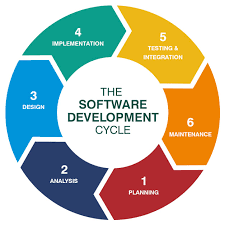Unlocking Success: The Strategic Role of a Consultant in Modern Business
The Role of a Consultant in Today’s Business World
In the fast-paced and ever-evolving business landscape, the role of a consultant has become increasingly vital. Consultants are hired experts who provide specialized advice and guidance to organizations seeking to improve their performance, solve problems, or achieve specific goals.
Expertise and Knowledge
Consultants bring a wealth of expertise and knowledge to the table. They often have years of experience in their respective fields and possess in-depth insights into industry best practices. This expertise allows consultants to offer valuable perspectives and innovative solutions that can drive business growth and success.
Objective Perspective
One of the key benefits of hiring a consultant is their ability to provide an objective perspective on internal operations and challenges. Being external to the organization, consultants can offer unbiased assessments and recommendations without being influenced by internal politics or preconceived notions.
Specialized Skills
Consultants are typically hired for their specialized skills in areas such as management, marketing, finance, human resources, or technology. These skills complement the existing capabilities within an organization and enable consultants to address specific needs or gaps that may exist.
Problem Solving
Consultants excel at problem-solving. They are adept at identifying issues, analyzing root causes, and developing strategic solutions to overcome challenges. Whether it’s streamlining processes, implementing new technologies, or restructuring operations, consultants play a critical role in driving positive change.
Adaptability
In today’s dynamic business environment, adaptability is key. Consultants are skilled at adapting to different industries, company cultures, and project requirements. Their flexibility allows them to quickly integrate into organizations, understand complex issues, and deliver results efficiently.
Conclusion
The role of a consultant is multifaceted and essential in helping businesses navigate complexities and achieve success. By leveraging their expertise, objectivity, specialized skills, problem-solving abilities, and adaptability, consultants contribute value by driving innovation, efficiency, and growth in today’s competitive marketplace.
Top 7 Frequently Asked Questions About Hiring a Consultant
- What does a consultant do?
- How can a consultant help my business?
- What qualifications should I look for in a consultant?
- How much does consulting services typically cost?
- How long does a consulting engagement usually last?
- Can consultants work remotely or on-site?
- What industries do consultants typically specialize in?
What does a consultant do?
Consultants play a crucial role in providing expert advice and guidance to organizations across various industries. When asked, “What does a consultant do?” it can be summarized that consultants leverage their specialized knowledge and skills to help businesses solve problems, improve performance, and achieve specific goals. They offer objective perspectives, strategic insights, and innovative solutions tailored to the unique needs of each client. Consultants excel at analyzing complex issues, identifying opportunities for growth, and implementing effective strategies to drive positive change within organizations. Their adaptability, problem-solving abilities, and industry expertise make them valuable partners in navigating challenges and maximizing success in today’s competitive business world.
How can a consultant help my business?
Hiring a consultant can greatly benefit your business in various ways. Consultants bring a fresh perspective and specialized expertise to the table, offering insights and solutions that can help improve your business performance. They can assist in identifying and addressing operational inefficiencies, developing strategic plans for growth, implementing new technologies or processes, and providing guidance on specific challenges or opportunities. By leveraging their knowledge and experience, consultants can help optimize your operations, enhance decision-making processes, and ultimately drive your business towards greater success.
What qualifications should I look for in a consultant?
When considering what qualifications to look for in a consultant, it is essential to prioritize expertise, experience, and a track record of success in relevant areas. A consultant should possess in-depth knowledge of the industry or field in which they specialize, as well as a proven ability to address specific challenges and deliver results. Additionally, strong communication skills, problem-solving abilities, adaptability, and a collaborative approach are valuable qualities to seek in a consultant. It is also beneficial to consider certifications, educational background, and references from previous clients when evaluating the qualifications of a potential consultant. By selecting a consultant with the right qualifications, you can ensure that you receive expert guidance and support tailored to your unique needs and objectives.
How much does consulting services typically cost?
Consulting services costs can vary widely depending on several factors such as the consultant’s expertise, the scope of the project, the duration of the engagement, and the specific industry or niche involved. Generally, consulting fees are structured either on an hourly basis, a project basis, or through retainer agreements. Hourly rates can range from $50 to $500 or more per hour, while project-based fees may be determined based on the complexity and deliverables of the project. Retainer agreements involve a fixed monthly fee for ongoing advisory services. It’s important for clients to discuss pricing expectations upfront with consultants to ensure transparency and alignment on cost considerations before engaging in any consulting services.
How long does a consulting engagement usually last?
Consulting engagements can vary significantly in duration depending on the nature and scope of the project. While some consulting assignments may be short-term and last a few weeks to a couple of months, others can extend over several months or even years. The duration of a consulting engagement is typically determined by factors such as the complexity of the project, the goals to be achieved, the resources required, and the client’s specific needs. Consultants work closely with clients to establish clear timelines and milestones to ensure that the engagement is completed successfully within an appropriate timeframe while delivering tangible results.
Can consultants work remotely or on-site?
Consultants have the flexibility to work remotely or on-site, depending on the nature of the project and client preferences. With advancements in technology and communication tools, many consultants are able to effectively collaborate with clients from a remote location. Remote work offers benefits such as cost savings, increased efficiency, and access to a wider talent pool. On the other hand, working on-site allows consultants to immerse themselves in the client’s environment, build stronger relationships, and gain a deeper understanding of the organization’s culture and operations. Ultimately, whether consultants work remotely or on-site is determined by the specific requirements of each project and the desired level of engagement with the client.
What industries do consultants typically specialize in?
Consultants typically specialize in a wide range of industries, tailoring their expertise to meet the specific needs of clients across various sectors. Common industries where consultants often focus their specialization include management consulting, financial services, healthcare, technology, marketing and advertising, human resources, and energy. However, consultants are adaptable professionals who can apply their skills and knowledge to virtually any industry, offering valuable insights, strategic guidance, and innovative solutions to help organizations thrive in today’s competitive business landscape.




